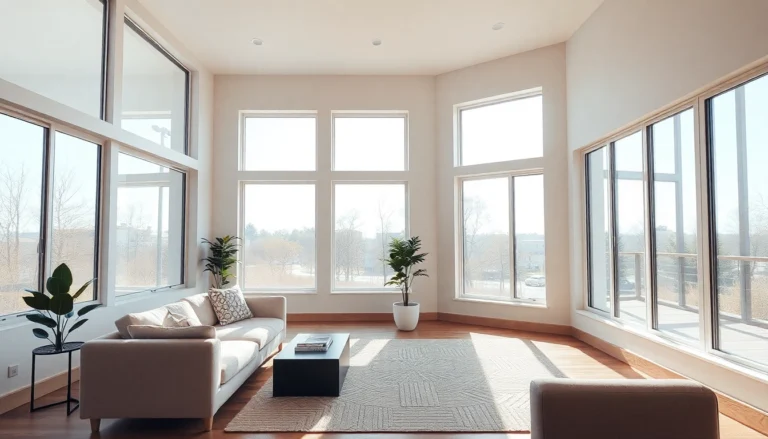Understanding the Role of Roofing Contractors in Home and Business Projects
1.1 What Do Roofing Contractors Do?
Roofing contractors play a crucial role in ensuring the integrity, safety, and aesthetics of both residential and commercial buildings. Their primary responsibility is the installation, repair, and maintenance of roofs, which serve as the first line of defense against weather elements such as rain, wind, snow, and hail. These professionals are skilled tradespeople trained to work with a wide range of roofing materials including asphalt shingles, metal, slate, tiles, and flat roofing systems made of membrane materials like EPDM or TPO.
Beyond basic installation, roofing contractors are adept at diagnosing roof problems, identifying leaks, structural weaknesses, and damages caused by storms or aging. They also offer preventative maintenance services to extend the lifespan of roofing systems and manage replacements when repairs are no longer feasible or cost-effective. A reputable roofing contractor also ensures that all work adheres to local building codes, safety regulations, and industry standards.
For example, professional roofing contractors conduct thorough inspections to assess the current state of a roof and provide clients with detailed proposals. These proposals include repair or replacement strategies, timetables, and comprehensive cost estimates, facilitating informed decision-making for property owners.
1.2 Types of Roofing Services Offered
Roofing contractors offer a diverse array of services tailored to the specific needs of their clients. These services include:
- Roof Installation: Installing new roofs on new structures or as part of renovation projects. This involves selecting appropriate materials, ensuring proper insulation, and adhering to manufacturer and local authority specifications.
- Roof Repairs: Fixing leaks, replacing damaged shingles or tiles, correcting structural issues, and addressing weather-related damages. Repairs are typically prioritized to prevent escalation into more severe problems.
- Roof Maintenance: Routine inspections, cleaning of gutters and debris removal, sealing cracks, and checking for potential weaknesses to prolong roof longevity.
- Roof Replacement: When repairs are insufficient or inefficient, contractors facilitate complete roof removal and replacement, ensuring minimal disruption and optimal durability.
- Specialized Roofing Services: These include flat roof solutions, green roofing (vegetative roofs), solar panel integration, leadwork, zinc and metal roofing, and custom design projects that require advanced technical expertise.
An example of specialized services is the installation of green roofs, which provide environmental benefits such as improved insulation and stormwater management, demonstrating the evolving skills within the roofing sector.
1.3 How to Choose Reliable Roofing Contractors
Selecting a dependable roofing contractor is paramount to ensuring a quality outcome and avoiding costly mistakes. The process involves thorough research, evaluating credentials, and verifying past performance. Start by asking for recommendations from friends, family, or local property management firms. Online directories and industry associations like the roofing contractors directory can serve as reliable sources of verified professionals.
Next, verify the contractor’s certification, industry affiliations (such as membership with the National Federation of Roofing Contractors or the Confederation of Roofing Contractors), and insurance coverage. These credentials demonstrate professionalism and adherence to industry standards.
Review portfolios of previous projects, ask for client references, and examine online reviews to assess reputation and quality of work. It’s also crucial to obtain multiple quotes to compare pricing, scope of work, and warranties offered. A trustworthy contractor offers transparent estimates that detail material costs, labor charges, project timelines, and warranty terms.
Finally, ensure the contractor complies with local building codes and has the necessary permits before commencing work. Proper documentation and adherence to legal requirements prevent future liabilities or legal complications.
2. Key Factors to Consider When Hiring Roofing Contractors
2.1 Certification and Industry Affiliations
A primary indicator of a professional roofing contractor is their certification, which confirms they meet industry standards and possess the necessary skills. Certifications may include manufacturer-specific training, such as GAF Master Elite, or broader industry recognitions like membership in the NFRC or CORC. These affiliations often require ongoing training, adherence to safety protocols, and a commitment to quality, which can assure clients of the contractor’s credibility and expertise.
Additionally, being part of reputable industry groups provides contractors with access to the latest techniques, materials, and safety regulations, thereby enhancing service quality and compliance.
2.2 Experience and Reputation
Experience is a vital aspect when selecting a roofing contractor. An established company with a proven track record can better navigate complex projects, anticipate potential issues, and deliver reliable results. Experience often correlates with familiarity with local building codes, climate challenges, and innovative repair techniques.
Reputation is equally important. Ask for references, examine customer reviews, and review completed projects if possible. A contractor with positive testimonials and a history of successful projects demonstrates reliability and quality workmanship. For instance, companies like Sterling Roofing Contractors showcase their decades of experience and local expertise, making them a trusted choice for clients.
2.3 Cost Estimation and Transparency
Transparent pricing is critical to avoid hidden charges and ensure budget adherence. Reputable roofing contractors provide detailed, written estimates outlining material costs, labor, permits, and disposal fees. They should also clarify the warranty coverage and post-installation support.
When evaluating quotes, compare not only prices but also the scope of work, quality of materials, and warranty terms. Remember, the cheapest option isn’t always the best; quality workmanship and durable materials offer more value over time. Clear communication about project timelines, payment schedules, and change order procedures further contribute to a smooth project execution.
3. Best Practices for Working with Roofing Contractors
3.1 Setting Clear Project Expectations
Before work begins, it’s essential to establish clear expectations regarding scope, timeline, quality standards, and payment terms. Draft a written contract that specifies materials to be used, project milestones, cleanup procedures, and warranties. Open dialogue ensures both parties are aligned, minimizing misunderstandings and disputes.
For example, discuss the method of installation for roofing materials, sequence of tasks, and contingency plans for adverse weather or delays. Regular site meetings and progress reports help keep the project on track.
3.2 Ensuring Proper Permits and Codes
Adherence to local building codes and acquiring all necessary permits are legal requirements and safeguard the property owner’s interests. Reputable contractors handle permit applications, inspections, and documentation, ensuring compliance with safety and environmental standards.
Failure to secure proper permits can result in fines, delays, or invalidation of warranties. Verify permit status at project initiation and perform regular inspections to ensure ongoing compliance throughout the work process.
3.3 Communication Throughout the Project
Transparent and consistent communication between the property owner and contractor minimizes miscommunication and promotes trust. Designate a point of contact, establish preferred communication channels (email, phone calls, on-site meetings), and ask for regular updates.
Should issues arise, prompt discussions and solutions prevent escalation. Effective communication also facilitates scheduling inspections, approving changes, and final sign-off.
4. Comparing Commercial and Residential Roofing Contractor Services
4.1 Specialized Skills and Materials
Commercial roofing projects often involve larger, more complex structures requiring specialized skills and materials. Flat roofs, membrane systems, and green roofs are common in commercial settings, demanding technical expertise and specific installation techniques.
Residential projects typically prioritize aesthetic appeal, ease of access, and a variety of material options like shingles and tiles. Contractors specializing in commercial work, such as Munton Roofing Contractors Ltd, demonstrate knowledge of current commercial standards, warranties, and safety protocols.
4.2 Project Timelines and Management
Commercial projects tend to be larger, involving extensive planning, multiple stakeholders, and longer timelines, sometimes spanning several months. Effective project management, adherence to schedules, and coordination with other trades are critical.
Residential projects are usually quicker, often completed within days to a few weeks, with a primary focus on minimizing homeowner disruption. Contractors with streamlined processes and clear communication, like Lane Roofing Contractors, excel in residential settings.
4.3 Post-Installation Maintenance and Warranties
Both commercial and residential projects benefit from warranties covering workmanship and materials. Commercial projects typically include ongoing maintenance agreements, emergency repair plans, and comprehensive warranties that cover multiple years.
Residential warranties generally span 10-25 years, depending on the materials used. Regular inspections, cleaning, and prompt repairs are vital for extending roof life. Engage contractors who provide detailed maintenance recommendations and responsive after-sales support.
5. Measuring Success and Ensuring Longevity of Roofing Projects
5.1 Quality Materials and Installation Techniques
The foundation for a durable roof is selecting high-quality materials and employing proven installation techniques. Premium materials, certified by manufacturers, ensure better resistance to weather and aging.
Proper installation techniques, including correct flashing, sealing, and ventilation, prevent common issues such as leaks and mold growth. Contractors should follow industry best practices, including adherence to manufacturer recommendations and Building Physics principles.
5.2 Routine Inspections and Maintenance
Routine inspections, ideally annually or after severe weather events, can identify early signs of deterioration. Clean gutters, remove debris, and inspect for loose or damaged shingles to maintain roof integrity.
Preventative maintenance extends lifespan, saves money on repairs, and helps sustain warranty validity. Employing professional roofing contractors for inspections ensures thorough assessments and expert advice.
5.3 Customer Reviews and Performance Metrics
Customer feedback is a valuable indicator of a contractor’s reliability and quality. Collect reviews from multiple sources, and consider testimonials related to punctuality, craftsmanship, and customer service.
Performance metrics such as project completion times, warranty claims, and post-project inspections provide data to measure contractor performance objectively, guiding future hiring decisions.


















